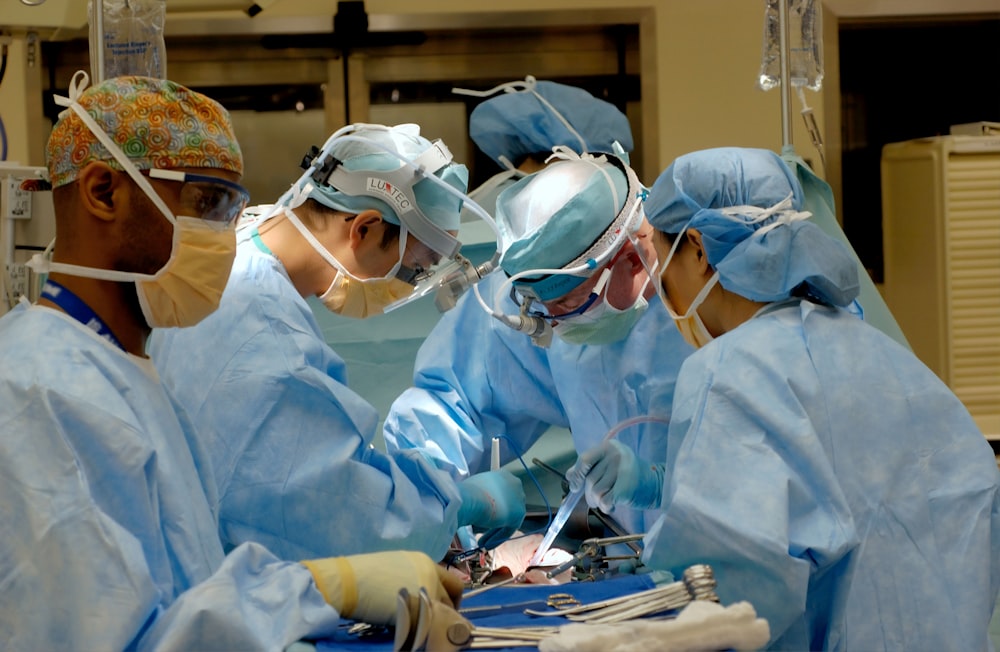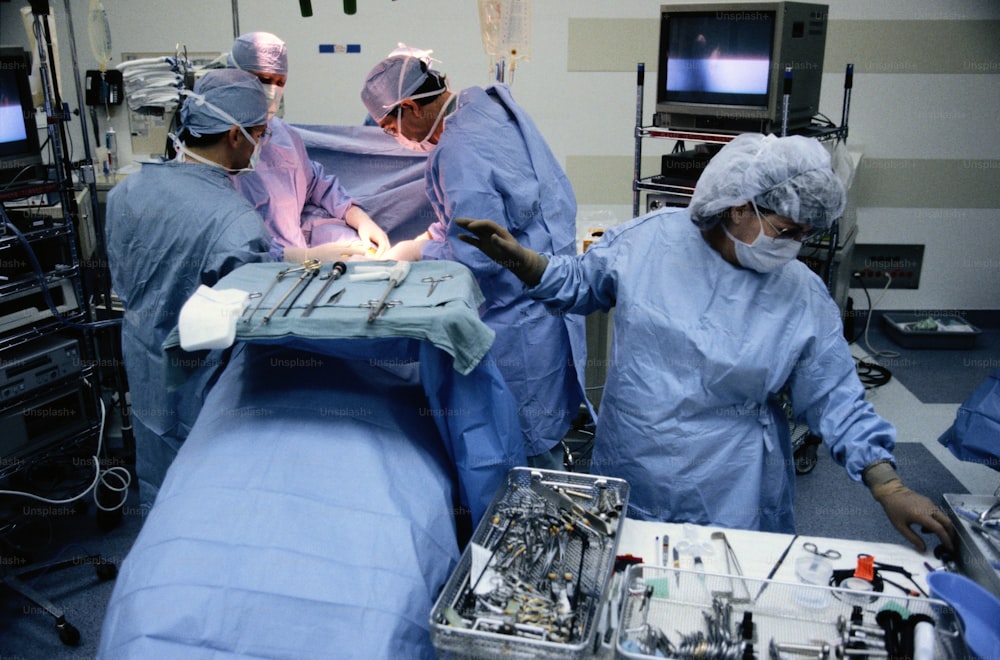General Surgery: Guide to a Dynamic Medical Specialty
General surgery stands as a core discipline within the field of medicine, encompassing a diverse range of surgical procedures and treatments aimed at addressing a wide array of medical conditions. From emergency trauma care to elective procedures, general surgeons are adept at providing comprehensive surgical care, making significant contributions to patient outcomes and the advancement of surgical techniques. In this article, we will delve into the fundamental aspects of general surgery, including the scope of practice, specialized areas of focus, advanced technologies, and the evolving landscape of surgical care.
The Scope of General Surgery: Diverse Expertise and Comprehensive Care
Image via Unsplash.com
General surgery encompasses a broad spectrum of surgical procedures, ranging from routine interventions to complex, life-saving operations. General surgeons are trained to address conditions affecting the abdomen, digestive system, endocrine system, breast, skin, and soft tissues, among others. Their expertise extends to procedures such as appendectomies, hernia repairs, gallbladder removal, colon resections, mastectomies, and excision of skin lesions, exemplifying the diverse scope of practice that characterizes the field.
Moreover, general surgeons are often at the forefront of trauma care, providing immediate, life-saving interventions in emergency situations. Their proficiency in managing critical injuries, stabilizing patients, and swiftly performing necessary surgeries contributes significantly to the survival and recovery of trauma patients. Through a combination of surgical skill, clinical acumen, and teamwork in trauma centers and emergency departments, general surgeons play a vital role in responding to acute medical crises.
Specialized Areas of Focus: Beyond General Practice
Image via Unsplash.com
While general surgery encompasses a wide range of procedures, many surgeons opt to pursue additional training and specialization in specific areas of surgical practice. Subspecialties within general surgery include surgical oncology, colorectal surgery, vascular surgery, minimally invasive surgery, and trauma surgery, among others. These subspecialties allow surgeons to develop advanced knowledge and proficiency in particular surgical domains, providing specialized care to patients with complex conditions and unique surgical needs.
Surgical oncologists focus on the management of cancer through surgical interventions, working closely with oncology teams to provide comprehensive, multidisciplinary care to cancer patients. Colorectal surgeons specialize in the diagnosis and surgical management of conditions affecting the colon, rectum, and anus, including colorectal cancer, inflammatory bowel disease, and complex pelvic floor disorders. Vascular surgeons address disorders of the circulatory system, managing conditions such as aortic aneurysms, peripheral arterial disease, and venous disorders.
The advent of minimally invasive surgery, including laparoscopic and robotic-assisted techniques, has revolutionized the field of general surgery. Minimally invasive approaches offer numerous benefits, such as reduced postoperative pain, shorter hospital stays, and faster recovery times for patients. Surgeons specializing in minimally invasive surgery are proficient in utilizing advanced technologies to perform complex procedures through small incisions, contributing to improved patient outcomes and enhanced surgical precision.
Advanced Technologies and Innovations: Enhancing Surgical Care
Image via Unsplash.com
Technological advancements have profoundly impacted the practice of general surgery. It enables surgeons to perform procedures with greater precision, efficiency, and safety. The integration of robotic-assisted surgery, advanced imaging modalities, and computer-assisted navigation systems has enhanced the capabilities of general surgeons. It allows for more precise anatomical visualization and improved surgical planning.
Robotic-assisted surgical systems, such as the da Vinci Surgical System, provide surgeons with enhanced dexterity and visualization. It enables them to perform complex procedures with enhanced precision and control. Surgeons can manipulate surgical instruments with greater range of motion and perform intricate maneuvers in confined anatomical spaces. It offers potential benefits for patients undergoing minimally invasive procedures.
Moreover, advanced imaging modalities, including computed tomography (CT), magnetic resonance imaging (MRI). And intraoperative ultrasound, enable surgeons to visualize internal structures with exceptional clarity. It aids in the precise localization of pathology and facilitating optimal surgical planning. Additionally, computer-assisted navigation systems help surgeons navigate complex anatomical landmarks with greater accuracy. Particularly in procedures involving intricate bony structures and delicate neurovascular pathways.
The Evolving Landscape of General Surgery: Embracing Innovation and Adaptation
The field of general surgery continues to evolve in response to advancements in medical science, technology, and the changing healthcare landscape. Surgeons are increasingly embracing evidence-based practice, quality improvement initiatives, and interdisciplinary collaboration to enhance patient care and optimize clinical outcomes. Furthermore, the integration of telemedicine and digital health technologies has expanded access to surgical consultations. Along with follow-up care, and patient education, particularly in remote or underserved areas.
Surgical education and training have also undergone transformation. With an emphasis on innovative teaching methods, simulation-based training, and continuous professional development. Surgeons are leveraging virtual reality, simulation platforms, and procedural skills training to enhance surgical proficiency, refine techniques. And prepare for increasingly complex surgical scenarios. Additionally, international collaborations and knowledge sharing have facilitated the dissemination of best practices. And the standardization of surgical protocols across different healthcare systems.
In the era of value-based care and patient-centered practice, general surgeons are leveraging data-driven approaches, patient-reported outcomes. And shared decision-making to individualize treatment plans and optimize the patient experience. The incorporation of comprehensive care pathways, enhanced recovery protocols, and multidisciplinary care teams has led to improved perioperative care, reduced complications. And expedited patient recovery, underscoring the commitment of the surgical community to delivering high-quality, cost-effective care.
Conclusion: Navigating the Frontiers of Surgical Excellence

Image via Pexels.com
General surgery occupies a pivotal position within the landscape of modern healthcare. It encompasses a diverse array of procedures, subspecialties, and innovative approaches to surgical care. From routine interventions to complex, multidisciplinary collaborations, general surgeons continue to champion excellence in patient care. And in surgical innovation, and the pursuit of optimal clinical outcomes. As the field continues to evolve, embracing technological advancements, evidence-based practice. And interdisciplinary teamwork, the foundational principles of general surgery remain rooted in the commitment to providing compassionate, skillful. And comprehensive surgical care to individuals in need. Whether addressing acute surgical emergencies, managing complex oncological conditions. Or advancing the frontiers of minimally invasive surgery, general surgeons stand as stewards of surgical excellence, navigating the ever-evolving landscape of healthcare with expertise, determination. And unwavering dedication to the well-being of their patients.







